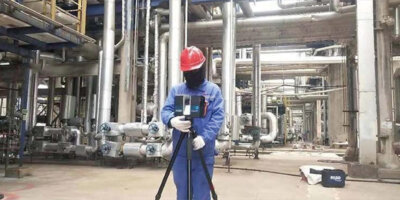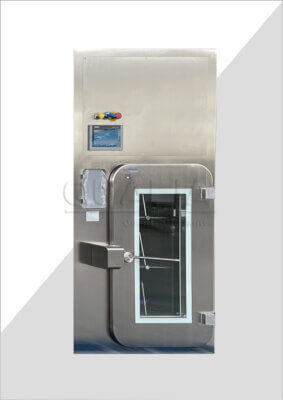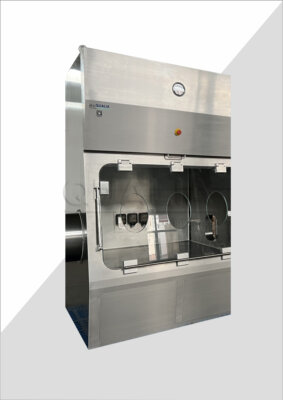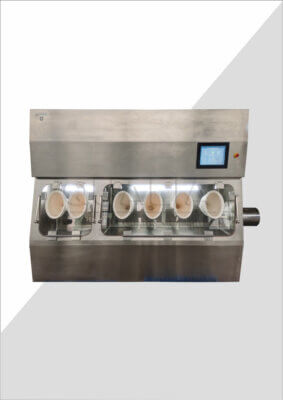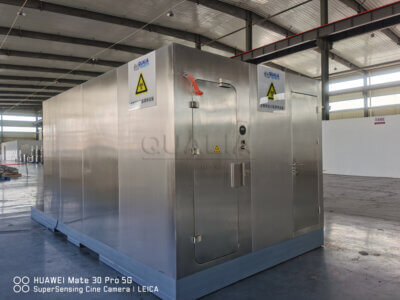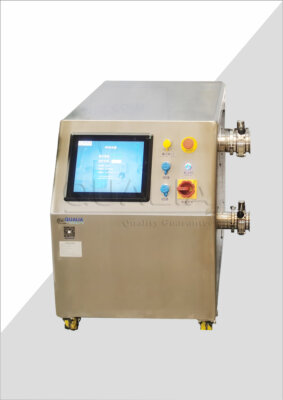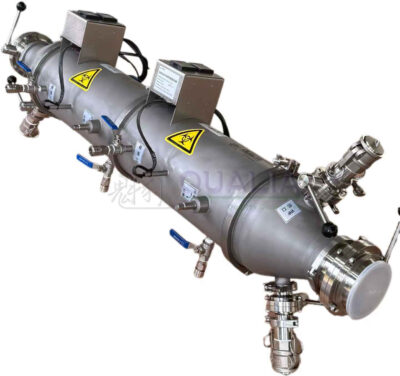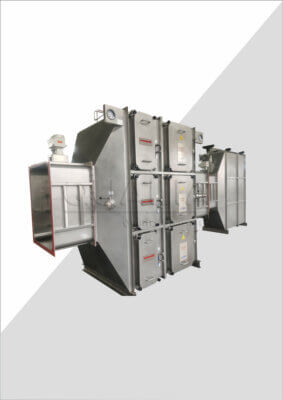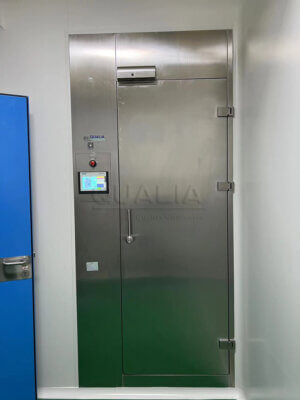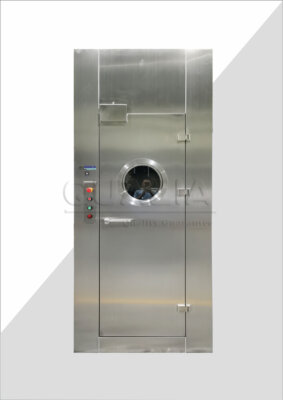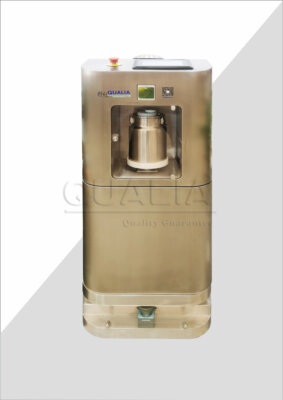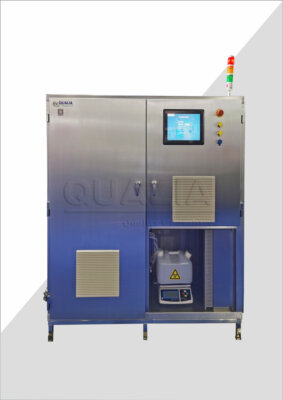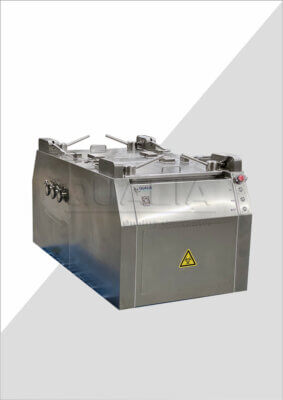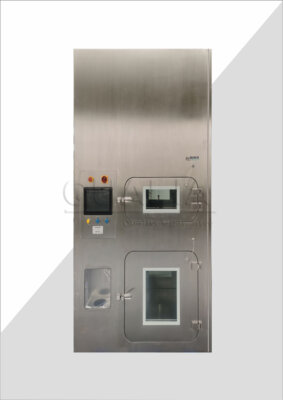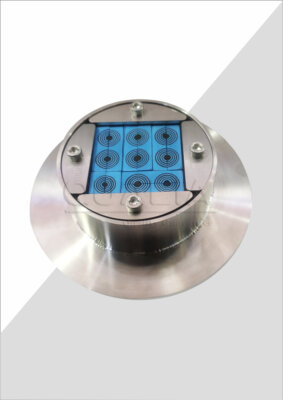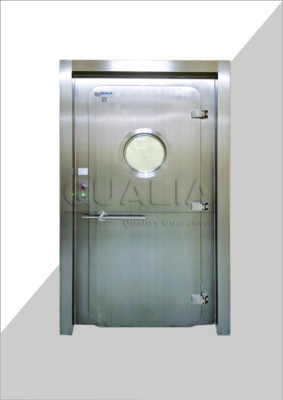In the rapidly evolving pharmaceutical industry, staying up-to-date with the latest technologies and regulations is crucial for professionals. One area of particular importance is the understanding and implementation of Closed Restricted Access Barrier Systems (cRABS). These systems play a vital role in maintaining sterility and preventing contamination in pharmaceutical manufacturing processes. As such, cRABS training and certification programs have become essential for those working in this field.
The demand for skilled professionals who can effectively operate and manage cRABS has led to the development of comprehensive training and certification programs. These programs are designed to equip individuals with the knowledge and skills necessary to ensure compliance with regulatory standards and maintain the highest levels of product quality and safety.
As we delve deeper into the world of cRABS training and certification, we'll explore the various aspects of these programs, their importance in the pharmaceutical industry, and how they contribute to the overall quality and safety of pharmaceutical products. From understanding the basics of cRABS technology to mastering advanced operational techniques, these programs cover a wide range of topics essential for pharmaceutical professionals.
cRABS training and certification programs are crucial for maintaining the highest standards of sterility and contamination prevention in pharmaceutical manufacturing processes.
What are the key components of cRABS training programs?
cRABS training programs are designed to provide comprehensive education on all aspects of Closed Restricted Access Barrier Systems. These programs typically cover a wide range of topics, from basic principles to advanced operational techniques.
The key components of cRABS training programs often include theoretical knowledge, practical skills, and regulatory compliance. Participants learn about the design and functionality of cRABS, proper operation procedures, maintenance protocols, and troubleshooting techniques.
One of the most critical aspects of these training programs is the hands-on experience they provide. Trainees are often given the opportunity to work with actual cRABS equipment, allowing them to gain practical skills in a controlled environment. This hands-on approach ensures that participants are well-prepared to handle real-world scenarios in pharmaceutical manufacturing settings.
Effective cRABS training programs combine theoretical knowledge with practical, hands-on experience to ensure comprehensive understanding and skill development.
| Component | Description |
|---|---|
| Theoretical Knowledge | Basic principles of cRABS, design, and functionality |
| Practical Skills | Hands-on operation, maintenance, and troubleshooting |
| Regulatory Compliance | Understanding and implementing relevant regulations |
| Safety Protocols | Proper handling of equipment and materials |
In conclusion, the key components of cRABS training programs are carefully designed to provide a well-rounded education that prepares professionals for the challenges of working with these critical systems in pharmaceutical manufacturing.
Why is cRABS certification important for pharmaceutical professionals?
In the highly regulated pharmaceutical industry, certification serves as a mark of expertise and competence. cRABS certification is particularly important as it demonstrates a professional's ability to operate and manage these complex systems effectively.
Certification in cRABS technology indicates that an individual has undergone rigorous training and has been assessed on their knowledge and skills. This certification is often required by employers and regulatory bodies as proof of competence in handling critical pharmaceutical manufacturing processes.
For pharmaceutical professionals, obtaining cRABS certification can lead to enhanced career opportunities and job security. As the demand for skilled operators of these systems continues to grow, certified professionals are often preferred for key positions in manufacturing facilities.
cRABS certification is a valuable credential that validates a professional's expertise in operating and managing Closed Restricted Access Barrier Systems, enhancing their credibility and career prospects in the pharmaceutical industry.
| Benefits of Certification | Impact |
|---|---|
| Enhanced Credibility | Demonstrates expertise to employers and peers |
| Career Advancement | Opens up new job opportunities and promotions |
| Regulatory Compliance | Ensures adherence to industry standards |
| Improved Safety | Reduces risk of contamination and product defects |
In conclusion, cRABS certification is a crucial step for pharmaceutical professionals looking to advance their careers and contribute effectively to the industry's high standards of quality and safety.
How do cRABS training programs address regulatory compliance?
Regulatory compliance is a critical aspect of pharmaceutical manufacturing, and cRABS training programs place significant emphasis on this area. These programs are designed to ensure that professionals are well-versed in the latest regulations and guidelines governing the use of Closed Restricted Access Barrier Systems.
Training programs typically cover various regulatory frameworks, including Good Manufacturing Practices (GMP), FDA guidelines, and international standards. Participants learn how to interpret and apply these regulations in their daily operations, ensuring that their work meets or exceeds regulatory requirements.
A key focus of regulatory compliance training is documentation and record-keeping. Professionals are taught how to maintain accurate logs, prepare reports, and handle audits effectively. This aspect of training is crucial for ensuring transparency and traceability in pharmaceutical manufacturing processes.
cRABS training programs play a vital role in ensuring regulatory compliance by providing in-depth education on relevant guidelines and fostering a culture of quality and safety in pharmaceutical manufacturing.
| Regulatory Aspect | Training Focus |
|---|---|
| GMP Guidelines | Application in cRABS operations |
| FDA Regulations | Compliance with specific requirements |
| Documentation | Proper record-keeping and reporting |
| Audit Preparation | Techniques for successful regulatory inspections |
In conclusion, by addressing regulatory compliance comprehensively, cRABS training programs equip professionals with the knowledge and skills necessary to maintain the highest standards of quality and safety in pharmaceutical manufacturing.
What advanced techniques are covered in cRABS certification programs?
cRABS certification programs go beyond the basics to cover advanced techniques that are essential for optimizing the performance and efficiency of these systems. These advanced topics are designed to push professionals to the next level of expertise in cRABS technology.
One of the key advanced techniques covered is aseptic processing. Trainees learn sophisticated methods for maintaining sterility throughout the manufacturing process, including advanced cleaning and sterilization techniques, air management systems, and contamination control strategies.
Another important advanced topic is process validation. Certification programs teach professionals how to design and implement robust validation protocols for cRABS, ensuring that these systems consistently produce high-quality, safe pharmaceutical products.
Advanced cRABS certification programs delve into sophisticated techniques such as aseptic processing and process validation, equipping professionals with the expertise to optimize system performance and ensure product quality.
| Advanced Technique | Description |
|---|---|
| Aseptic Processing | Maintaining sterility in manufacturing |
| Process Validation | Ensuring consistent system performance |
| Risk Management | Identifying and mitigating potential issues |
| Technology Integration | Incorporating new technologies with cRABS |
In conclusion, the advanced techniques covered in cRABS certification programs provide professionals with the high-level skills needed to excel in their roles and drive innovation in pharmaceutical manufacturing.
How do cRABS training programs incorporate practical experience?
Practical experience is a cornerstone of effective cRABS training programs. Recognizing the importance of hands-on learning, these programs incorporate various methods to ensure participants gain real-world skills alongside theoretical knowledge.
Many training programs utilize state-of-the-art simulation technologies to provide a safe and controlled environment for learning. These simulations allow trainees to practice operating cRABS equipment, troubleshoot common issues, and respond to various scenarios they might encounter in actual manufacturing settings.
In addition to simulations, some programs offer on-site training opportunities. This involves visiting operational pharmaceutical facilities to observe cRABS in action and even participate in supervised operational tasks. This real-world exposure is invaluable for reinforcing learned concepts and building confidence in trainees.
cRABS training programs emphasize practical experience through advanced simulations and on-site training, providing trainees with the hands-on skills necessary for successful implementation in real-world manufacturing environments.
| Practical Component | Learning Outcome |
|---|---|
| Simulation Training | Safe practice of operational procedures |
| On-site Observation | Real-world context for learned concepts |
| Supervised Tasks | Hands-on experience with actual equipment |
| Case Studies | Application of knowledge to real scenarios |
In conclusion, the incorporation of practical experience in cRABS training programs ensures that professionals are not just knowledgeable, but also competent and confident in their ability to operate these critical systems effectively.
What are the career benefits of completing cRABS training and certification?
Completing cRABS training and certification can significantly enhance a professional's career prospects in the pharmaceutical industry. As the demand for expertise in this specialized area continues to grow, certified professionals often find themselves in high demand.
One of the primary benefits is increased job opportunities. Many pharmaceutical companies specifically seek out professionals with cRABS certification when filling key positions in their manufacturing facilities. This certification can open doors to roles such as manufacturing technicians, quality assurance specialists, and production managers.
Furthermore, cRABS certification often leads to higher earning potential. Certified professionals are viewed as experts in their field and are typically compensated accordingly. The specialized knowledge and skills gained through certification can justify higher salaries and more competitive benefits packages.
cRABS training and certification can lead to enhanced career opportunities, higher earning potential, and increased job security in the competitive pharmaceutical industry.
| Career Benefit | Impact |
|---|---|
| Job Opportunities | Access to specialized roles |
| Earning Potential | Higher salaries and benefits |
| Career Advancement | Faster progression to senior positions |
| Industry Recognition | Respected as an expert in the field |
In conclusion, investing in cRABS training and certification can yield significant career benefits, positioning professionals for success in the dynamic and demanding field of pharmaceutical manufacturing.
How often should professionals update their cRABS training and certification?
The pharmaceutical industry is characterized by rapid technological advancements and evolving regulatory requirements. As such, it's crucial for professionals to regularly update their cRABS training and certification to stay current with industry standards and best practices.
Most certification bodies recommend that professionals renew their cRABS certification every two to three years. This renewal process often involves completing continuing education courses, attending industry conferences, or passing recertification exams.
Regular updates to training and certification ensure that professionals are familiar with the latest cRABS technologies, regulatory changes, and operational best practices. This ongoing education is essential for maintaining the highest standards of quality and safety in pharmaceutical manufacturing.
Regular updates to cRABS training and certification, typically every two to three years, are essential for professionals to stay current with industry advancements and maintain their expertise in this critical field.
| Update Component | Frequency | Purpose |
|---|---|---|
| Recertification | Every 2-3 years | Verify continued competence |
| Continuing Education | Annual | Stay current with new developments |
| Industry Conferences | 1-2 per year | Network and learn about trends |
| Regulatory Updates | As needed | Ensure compliance with new rules |
In conclusion, regular updates to cRABS training and certification are not just a requirement, but a professional responsibility that ensures the continued safe and effective operation of these critical systems in pharmaceutical manufacturing.
As we've explored throughout this article, cRABS training and certification programs play a crucial role in the pharmaceutical industry. These programs equip professionals with the knowledge, skills, and credentials necessary to effectively operate and manage Closed Restricted Access Barrier Systems, which are essential for maintaining sterility and preventing contamination in pharmaceutical manufacturing processes.
From understanding the key components of training programs to recognizing the importance of certification, we've seen how these programs address regulatory compliance, incorporate advanced techniques, and provide practical experience. The career benefits of completing such training and certification are significant, offering enhanced job opportunities, higher earning potential, and increased job security.
It's clear that staying up-to-date with cRABS training and certification is not just beneficial, but essential for professionals in this field. Regular updates ensure that individuals remain at the forefront of industry advancements and regulatory changes, maintaining their expertise and value in the competitive pharmaceutical sector.
As the industry continues to evolve, the importance of comprehensive cRABS training and certification programs will only grow. These programs, offered by leading companies like QUALIA, are instrumental in shaping the future of pharmaceutical manufacturing by ensuring the highest standards of quality, safety, and efficiency in the production of life-saving medications.
External Resources
- Training – Cancer Research And Biostatistics – This page details the various training programs offered by CRAB, including clinical site training, investigator and statistical training, and customized clinical trials training. It is particularly relevant for professionals in the field of oncology and clinical trials.
- Office of The County Engineer Training | CRAB – This resource provides information on training sessions for County Engineers, Public Works Directors, and their staff. The training covers legal requirements and operational issues faced by county road engineers in Washington State.
- Compliance | CRAB – County Road Administration Board – Although not exclusively focused on training, this page discusses compliance audits and the standards of good practice that counties must adhere to, which includes training and assistance provided by CRAB staff.
- Florida Horseshoe Crab Watch Virtual Volunteer Training – This virtual training program is designed for volunteers interested in tracking horseshoe crab populations in Florida. It covers horseshoe crab biology, management, and essential skills for volunteers.
- SWOG Young Investigators Training Course – Part of the CRAB training programs, this specific course is for young investigators and includes a 3-day workshop to develop a nearly final protocol for implementation in SWOG clinical trials.
- SWOG Clinical Trial Training Course – This course introduces the fundamentals of SWOG and National Cancer Institute policies and procedures to new Clinical Research Associates (CRAs), providing the foundation for their responsibilities.
- Customized Clinical Trials Training – CRAB offers customized training courses tailored to the needs of different organizations, such as the Cancer Treatment Centers of America and the OHSU Knight Cancer Institute.
- CRAB Presentations at Scientific Meetings – This section mentions CRAB's participation in various scientific meetings and conferences, such as ASCO, ASH, and others, where they present and share their expertise in clinical trials training and research.
Related Contents:
- cRABS Material Transfer: Ensuring Sterile Product Flow
- cRABS in Sterile Drugs: Enhancing Aseptic Production
- cRABS and Industry 4.0: Smart Pharma Manufacturing
- cRABS Operator Training: Ensuring Competent Personnel
- cRABS Compliance: Meeting Pharmaceutical Regulations
- cGMP Compliance: Implementing cRABS in Pharma
- Custom cRABS: Tailored Solutions for Pharma Needs
- cRABS Cost Analysis: ROI in Pharmaceutical Production
- Top 5 Benefits of cRABS in Pharma Manufacturing


